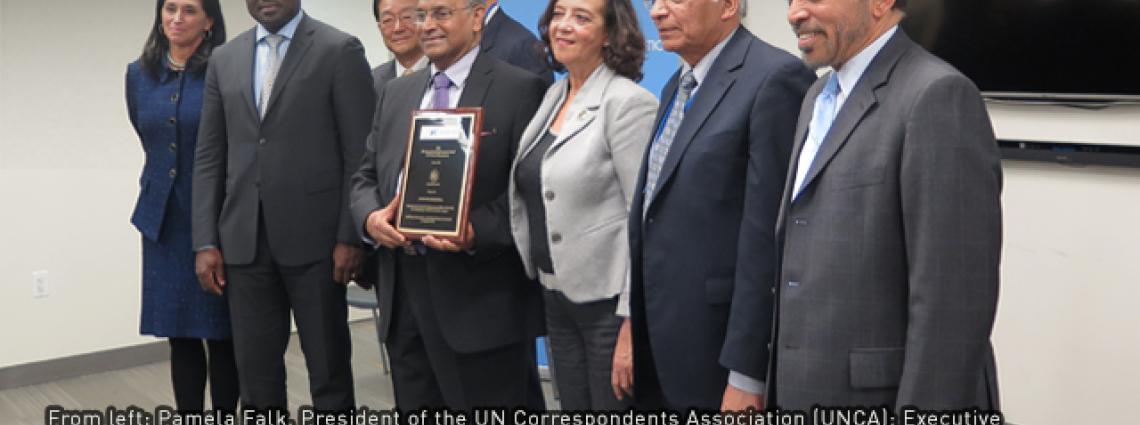Jayantha Dhanapala: Championing a World Free of Nuclear Weapons
The prestigious award for championing a world free of nuclear weapons recognizes the work of individuals and organizations and is co-sponsored by the Tokyo-based Soka Gakkai International, which is leading a global campaign for the abolition of nuclear weapons.
CTBTO Executive Secretary Lassina Zerbo congratulating Jayantha Dhanapala (right). Centre: Jonathan Granoff, President of the Global Security Institute.
In his keynote speech at the award ceremony, Lassina Zerbo, Executive Secretary of the Comprehensive Nuclear-Test-Ban Treaty Organization (CTBTO), acknowledged that “Throughout his soaring career, as a diplomat and in the UN, Jayantha has worked with persistence and eloquence to rid the world of weapons of mass destruction…the world we live in today would be less safe and less civilized were it not for Jayantha Dhanapala.”

Click to view GEM brochure
Opposing the CTBT because it fails to deliver complete disarmament is tantamount to opposing speed limits on roads because they fail to prevent accidents completely.
The discovery of nuclear fission in December 1938 led to the development of the world’s most destructive weapon. But God is fair, he unleashed a force of good at the same time: that very same month, a very special boy was born in Sri Lanka. His name: Jayantha Dhanapala.
Dhanapala is currently the President of the Nobel Peace Prize-winning Pugwash Conferences on Science and World Affairs, Deputy Chairman of the Governing Board of the Stockholm International Peace Research Institute, and a member of several other advisory boards of international bodies.
Previous recipients of the IPS International Achievement Award for their contributions to peace and development include: Brazilian President Lula da Silva (2008), UN Secretary-General Kofi Annan (2006), Global Call to Action Against Poverty (2005), Group of 77 developing countries (2000), UN Secretary-General Boutros Boutros-Ghali (1995), and Finnish President Martti Ahtisaari (1991).
18 Nov 2014
